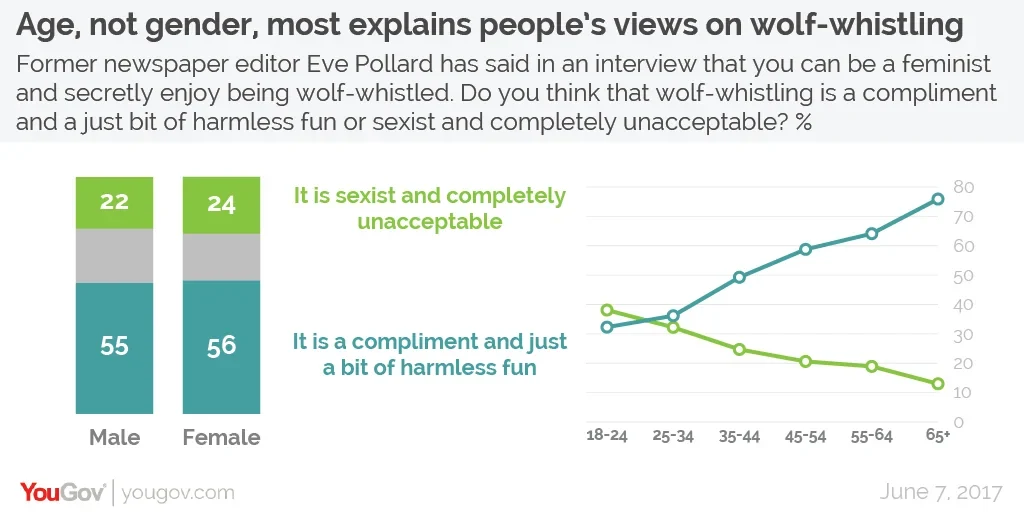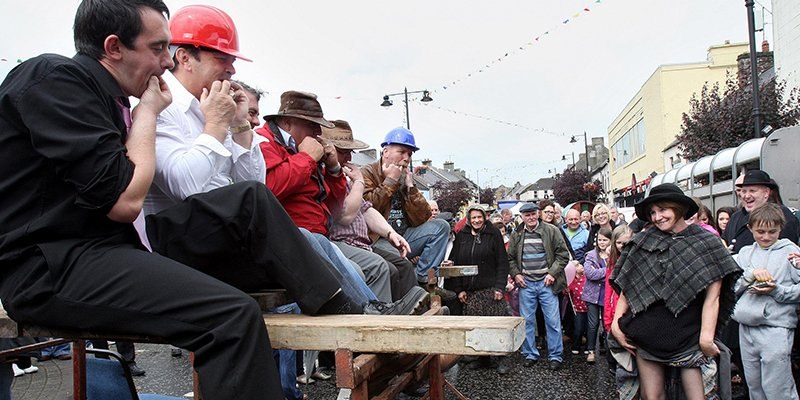Age, not gender, is the most likely determinant of a person’s attitudes towards wolf-whistling, with young people the most likely to see it as sexist
Former newspaper editor Eve Pollard made headlines recently by remarking that a woman can be a feminist and secretly enjoy getting wolf-whistled. Pollard bemoaned the fact that getting older has made her “invisible” and that “no man is ever going to wolf-whistle at me or stare moodily at me with a hint of lust again”.
New YouGov research finds that the majority (56%) of Britons consider wolf-whistling to be “a compliment and just a bit of harmless fun.” This is more than twice the proportion who consider it to be “sexist and completely unacceptable” (23%). A further 21% of Brits don’t know either way.
The research shows that age is more likely than gender to determine someone's views on wolf-whistling. While men and women are essentially equally likely to think wolf-whistling is fine (55% and 56% respectively) or unacceptable (22% and 24%), differences emerge between the generations.
The youngest Britons surveyed – those aged 18-24 – were the only group more likely to think wolf-whistling is sexist instead of harmess (38% vs 32%). However, each subsequent age group becomes increasingly more likely to hold more positive views, culminating in those aged 65+, where three quarters (76%) say that wolf-whistling is harmless fun compared to just 13% who think it is sexist.

Despite the more relaxed attitude of the British public at large towards wolf-whistling, the justice system seems to be turning against it. Last year Nottinghamshire Police made the decision to start recording acts of misogyny – including wolf-whistling – as a hate crime.
Photo: PA





